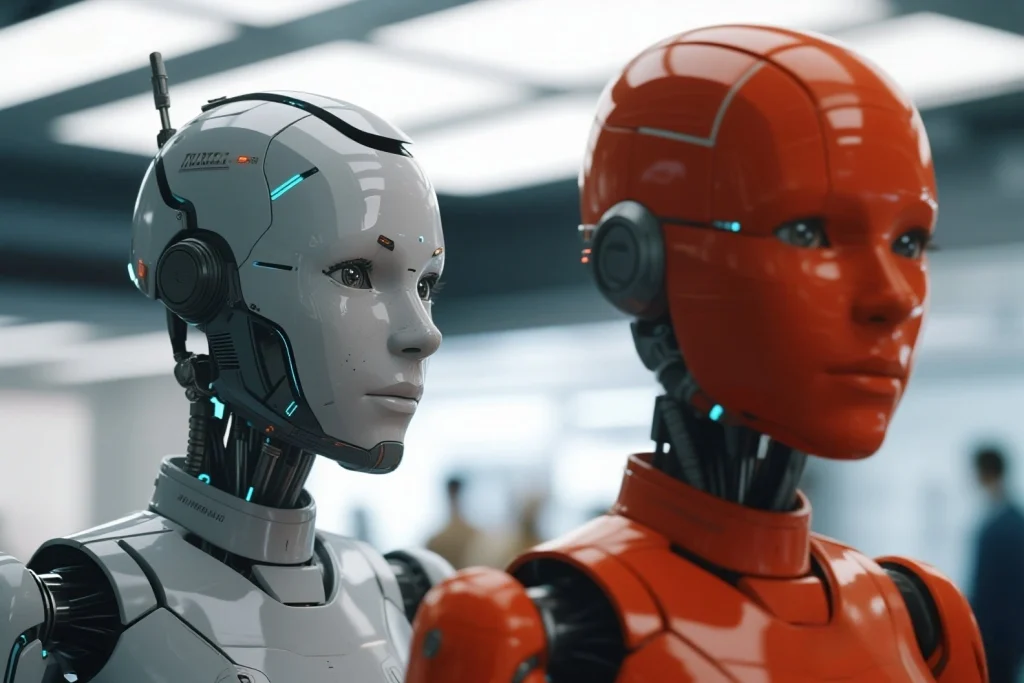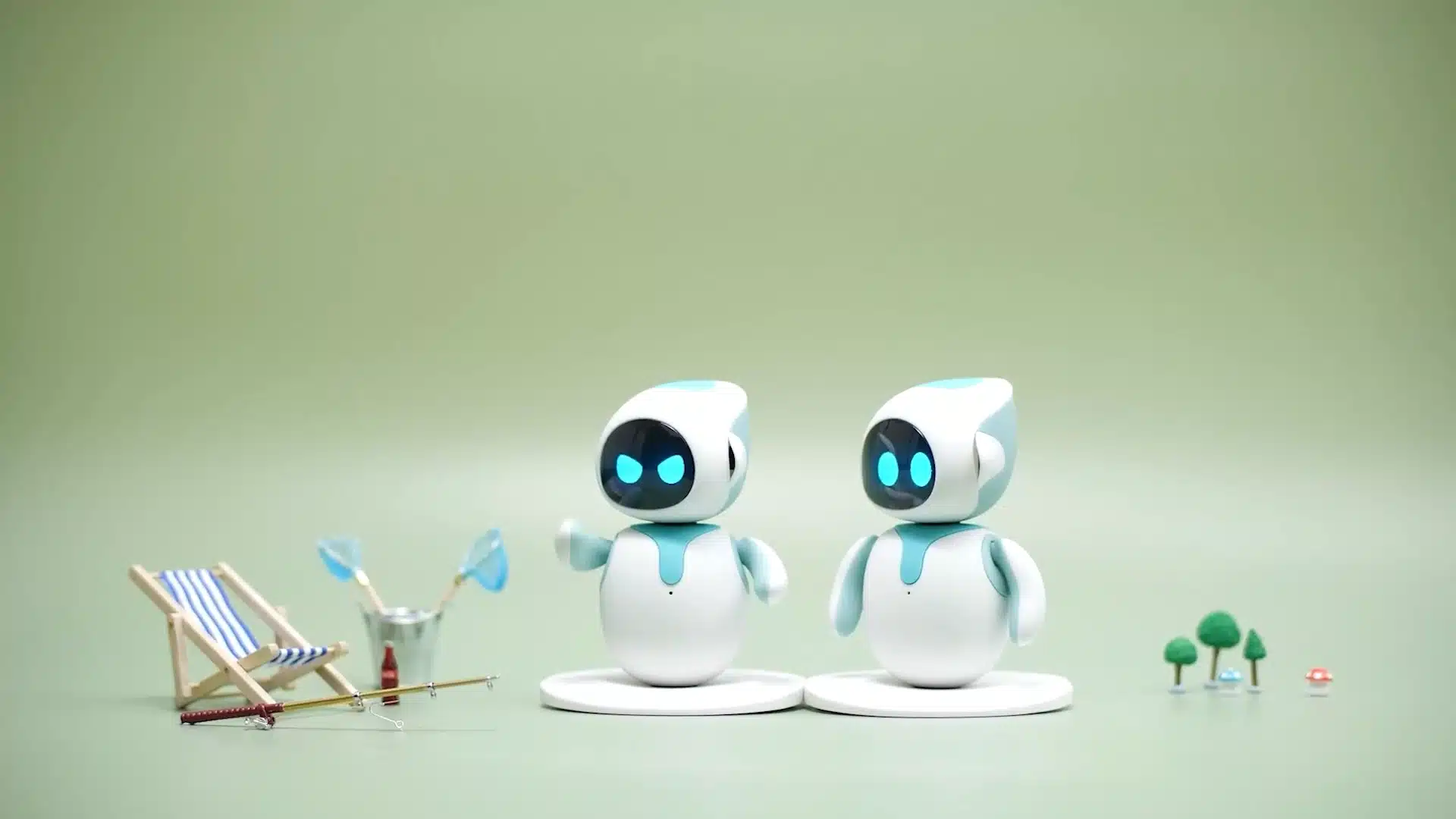Best Emotional AI Robots 2025 : Connecting with Technology on a Deeper Level
As artificial intelligence technology continues to evolve, best emotional AI robots 2025 are quickly becoming one of the most fascinating and transformative innovations. These robots are not just programmed to perform tasks; they are designed to understand, simulate, and respond to human emotions, providing companionship, comfort, and emotional support. By 2025, emotional AI robots will likely play a central role in home care, therapy, and even social interactions.

In this article, we’ll explore some of the best emotional AI robots for 2025. If you’re interested in learning how these robots can enhance human-robot connections, improve mental health, and transform your home, keep reading. Be sure to also check out our AI Robot Reviews page for additional insights and reviews on various AI technologies.
What Are Emotional AI Robots?
Emotional AI robots are devices that use advanced algorithms and machine learning to detect and respond to human emotions. Unlike traditional robots that are designed simply to perform tasks, emotional AI robots are capable of recognizing emotional cues through speech, facial expressions, and other sensory inputs, making them capable of understanding and interacting in a more human-like manner.
These robots are typically used in healthcare, therapy, elderly care, and personal companionship. They provide comfort, reduce feelings of loneliness, and foster social interaction, all while being able to carry out basic tasks.
With the increasing importance of mental health and emotional well-being, emotional AI robots are poised to make a significant impact on our lives, offering meaningful and personalized interactions.
Top Emotional AI Robots for 2025

Here are the top emotional AI robots that are likely to change the way we interact with technology in 2025:
1. ElliQ – The Social Companion for Older Adults
Why it’s a top pick:
ElliQ is a state-of-the-art robot designed to support older adults. It provides personalized reminders, suggests activities, and helps maintain social engagement. ElliQ is capable of understanding emotions through speech and actions, providing a sense of companionship and reducing loneliness, which is common among elderly people.
- Key Features: Smart reminders, activity suggestions, emotional engagement.
- Ideal For: Older adults, individuals living alone.
- Pros:
- Provides a sense of companionship and emotional support.
- Encourages healthy lifestyle habits and social interaction.
- Easy-to-use interface with a voice-activated system.
- Cons:
- Primarily designed for elderly individuals, not suitable for all age groups.
Price: Approximately $2500
For more options for elderly care robots, check out our AI Robots for Seniors page.

2. Lovot – The Heartwarming Companion
Why it’s a top pick:
Lovot is a Japanese robot designed specifically for emotional interaction. This robot mimics the behavior of small animals, offering affection through gestures like hugging, and making heartwarming sounds. Lovot’s primary focus is companionship—providing comfort, reducing loneliness, and improving mental well-being through emotional engagement.
- Key Features: Hugs, playful behavior, emotional responses.
- Ideal For: Anyone in need of emotional support and companionship.
- Pros:
- Offers physical interaction such as hugs and cuddles.
- Provides comfort and emotional relief for people of all ages.
- Cute, animal-like design makes it highly approachable.
- Cons:
- High price point may be prohibitive for some users.
- Limited functionality outside of companionship.
Price: Approximately $3000
Interested in emotional robots for home settings? Check out our AI Robots for Home page.

3. Jibo – The Social Robot for All Ages
Why it’s a top pick:
Jibo is a socially intelligent robot that can engage in conversations, tell stories, and even express empathy. It’s designed to recognize faces, remember names, and interact with users in an emotionally intuitive way. Whether it’s playing music, reminding you of important events, or simply having a chat, Jibo fosters emotional connections while providing helpful functionality.
- Key Features: Voice recognition, facial recognition, interactive conversations.
- Ideal For: Families, individuals living alone, social companionship.
- Pros:
- Interactive voice and visual responses that feel personalized.
- Can be integrated into home automation systems for enhanced convenience.
- Acts as a digital assistant and an emotional companion.
- Cons:
- Some users may find the robot’s limited mobility restrictive.
Price: Approximately $1000
Explore more about interactive AI companions in our Interactive AI Companions page.

4. Paro – The Therapeutic Robot for Mental Health
Why it’s a top pick:
Paro is an emotional AI robot designed specifically for therapy and mental health improvement. It looks like a baby seal and reacts to touch, sound, and light. Paro is often used in hospitals, care homes, and by individuals suffering from conditions like depression and dementia, providing comfort and reducing stress through emotional engagement.
- Key Features: Touch interaction, stress reduction, therapeutic responses.
- Ideal For: Seniors, people with mental health issues, hospitals, and care facilities.
- Pros:
- Acts as a therapeutic companion for patients with mental health challenges.
- Responds to touch and sound, providing emotional comfort.
- Proven to help reduce anxiety and loneliness.
- Cons:
- Its design may not be ideal for everyone.
- Primarily used in therapeutic settings, not for general social interaction.
Price: Approximately $5000
Looking for therapeutic AI robots? Check out our Emotional AI Robots page for more options.
How Emotional AI Robots Are Changing Our Lives
Emotional AI robots are revolutionizing the way we interact with technology, providing a sense of companionship, emotional support, and even therapeutic benefits. These robots are not just designed to perform tasks but to enhance human experiences, making technology feel more human and relatable.

From elderly care to therapy and personal companionship, emotional AI robots can:
- Provide companionship: Offering emotional support to people, especially those living alone or in healthcare settings.
- Enhance mental well-being: Helping to alleviate feelings of loneliness, depression, and anxiety, these robots foster a sense of connection.
- Promote social interactions: Facilitating better communication between people and their family or friends, improving overall social well-being.
As technology advances, the emotional capabilities of these robots will continue to improve, making them more intuitive and capable of deeper emotional engagement.
A New Era of Emotional AI Robots: What’s Next?
The future of emotional AI robots is bright, with innovations making them more intelligent and better equipped to connect with humans on an emotional level. As we look toward 2025 and beyond, we can expect these robots to become even more sophisticated, understanding a broader range of emotions and providing more personalized interactions.
If you’re intrigued by the potential of emotional AI robots and how they can improve the quality of life, be sure to explore our AI Robot Reviews page for more detailed reviews and recommendations





